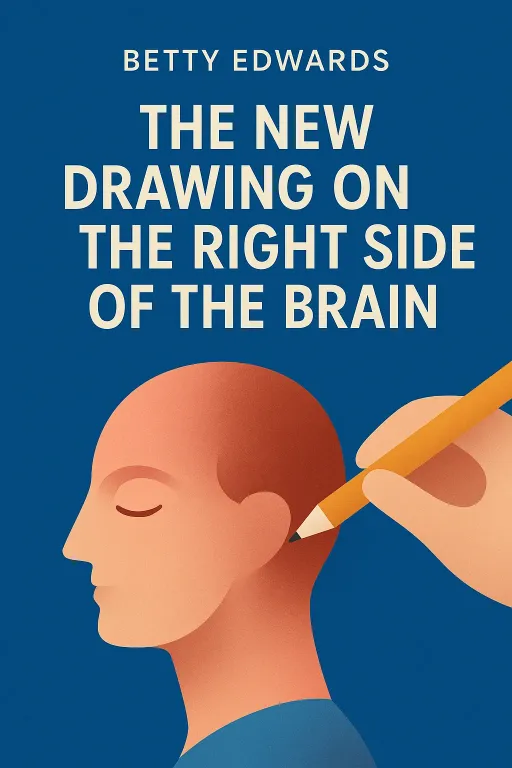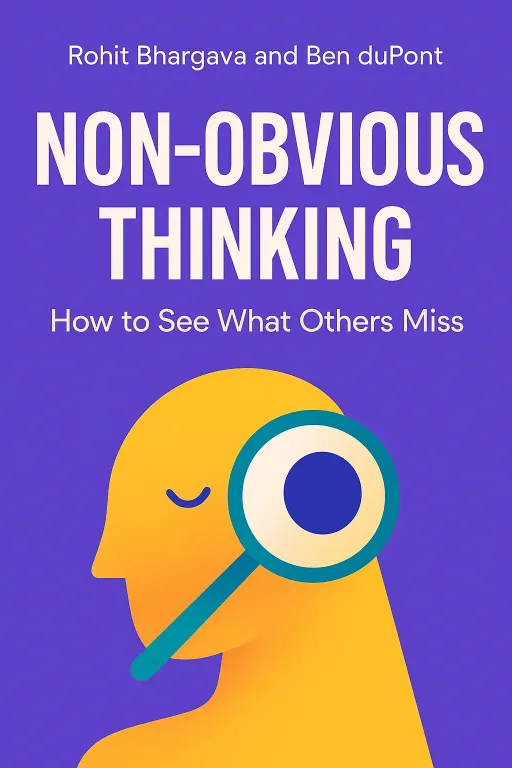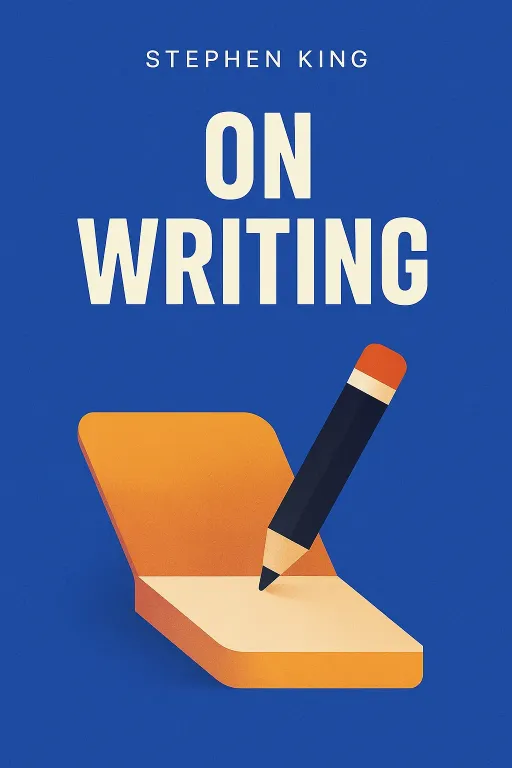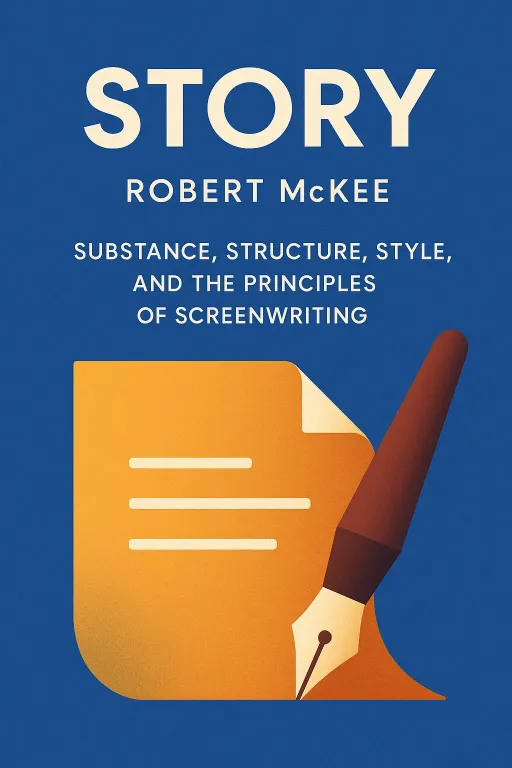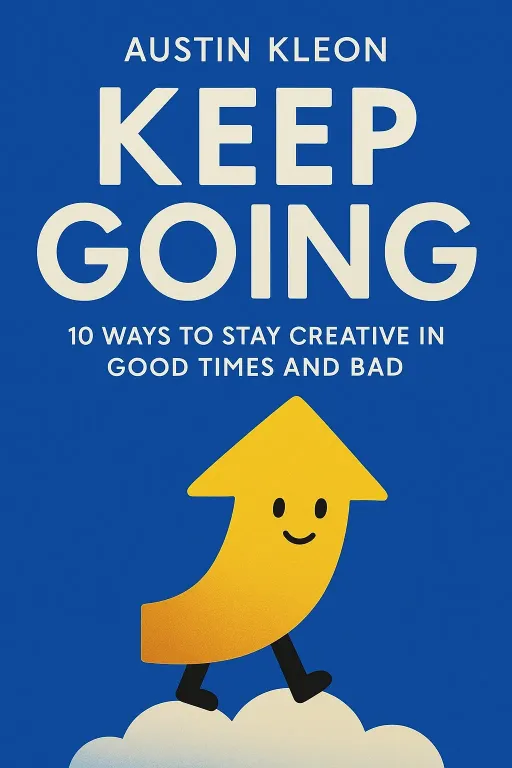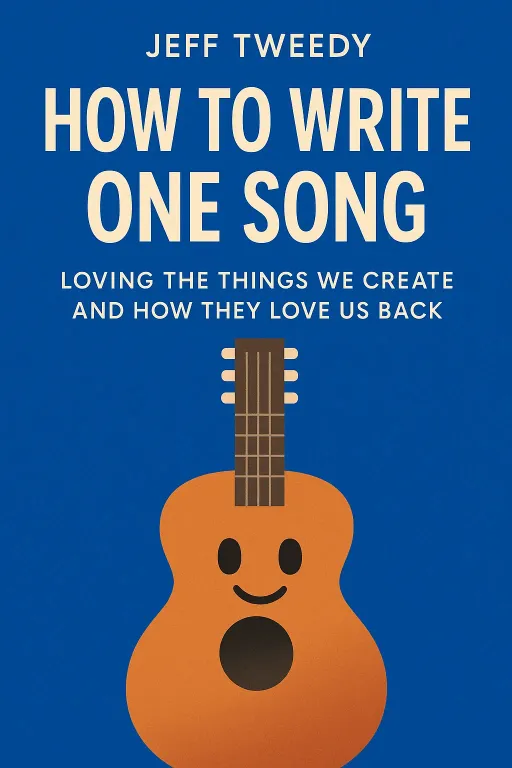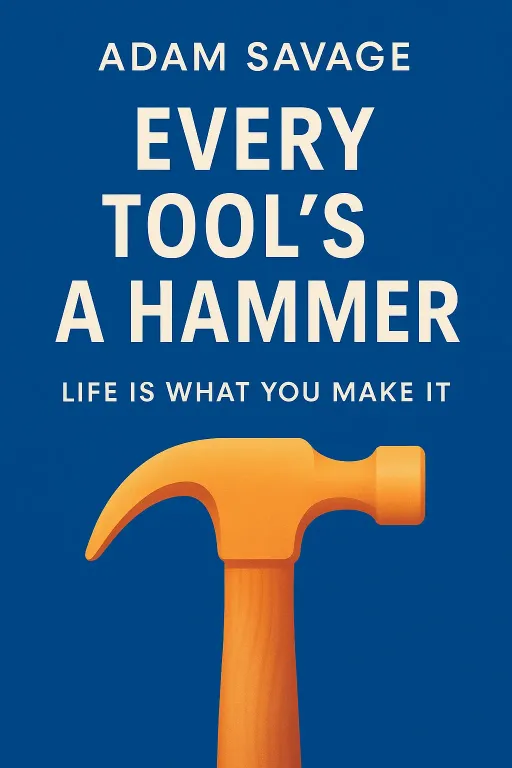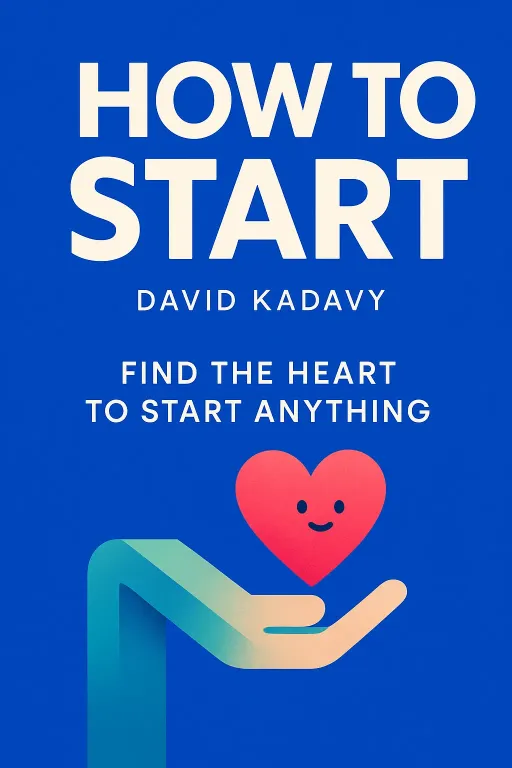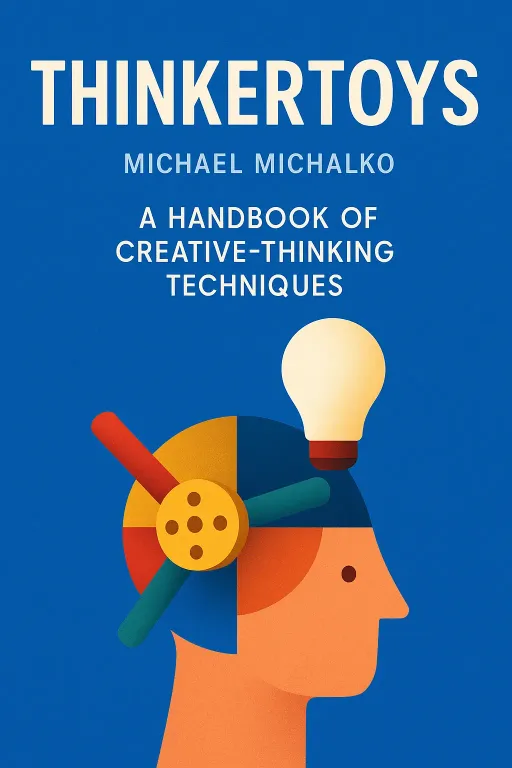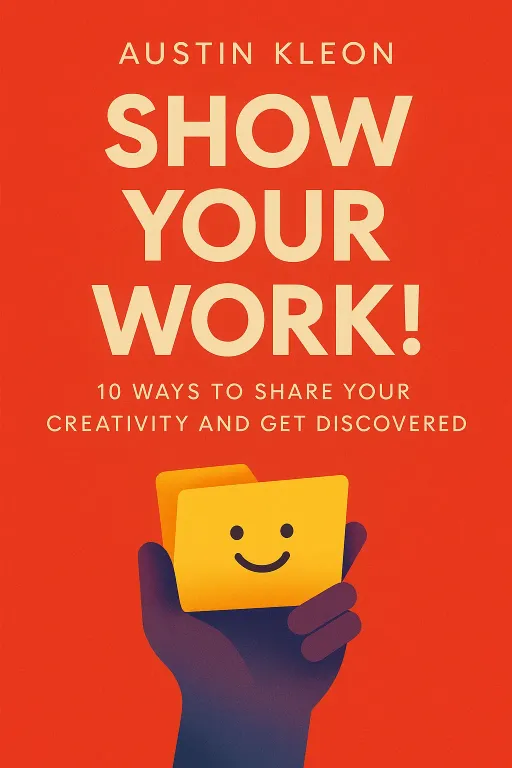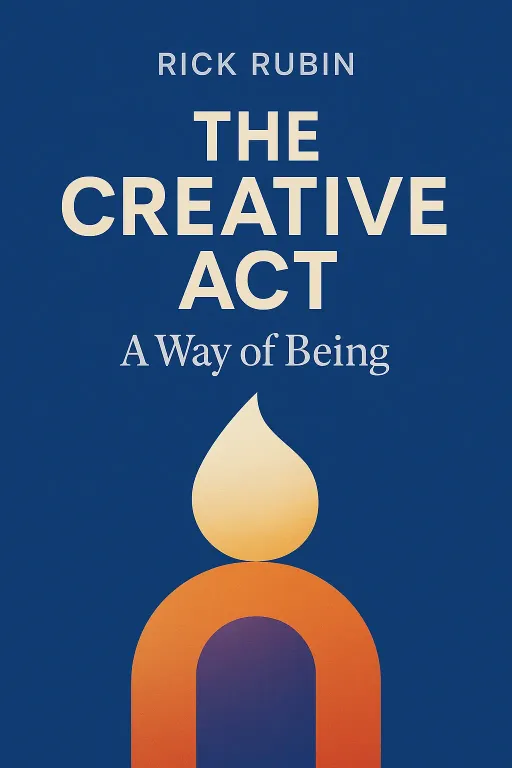
Rick Rubin: Genius or Antenna?
12 minA Way of Being
Golden Hook & Introduction
SECTION
Rachel: Okay, Justine. We’re diving into a book that’s been on basically everyone’s nightstand for the last year. If you had to review it in exactly five words, what would they be? Justine: Oh, that’s easy. "Beautiful, but where's the manual?" Rachel: That is perfect. Mine would be: "Zen master's guide to everything." And I think in the space between our two reviews, we find the magic and the challenge of this book. Justine: I love that. It’s this gorgeous, poetic thing, but my practical brain is screaming, "Give me a checklist!" So what are we talking about today? Rachel: We are diving deep into The Creative Act: A Way of Being by the legendary music producer Rick Rubin. And what’s fascinating is that this is his first book, after a forty-year career shaping the sound of modern music. He co-wrote it with Neil Strauss, who is famous for a very, very different kind of book, The Game. Justine: Hold on, Rick Rubin? The guy who produced Run-DMC, the Red Hot Chili Peppers, and then turned around and did those haunting Johnny Cash albums? That Rick Rubin is writing a book on… being? It feels like finding out your mechanic is secretly a world-class poet. Rachel: Exactly! And that’s the perfect entry point. Because for Rubin, the process of producing an iconic album and the process of living a meaningful life are fundamentally the same. It all starts with one radical idea that flips our entire understanding of creativity on its head.
The Artist as a Vessel: Tuning into 'The Source'
SECTION
Justine: Okay, I’m intrigued. A "radical idea" from a guy who looks like the most peaceful man on the planet. Lay it on me. What’s the big secret? Rachel: The secret is that there is no secret you need to invent. Rubin’s entire philosophy is built on this: creativity isn't something you generate. It’s something you receive. He talks about a universal, ever-present "Source" of creative energy. The artist’s job isn't to be a brilliant inventor, but to be a sensitive antenna. Justine: An antenna. So I’m not a genius storyteller, I’m just a piece of cosmic radio equipment? I’m not sure if that’s liberating or a little insulting. Rachel: It’s profoundly liberating! Think about the pressure we put on ourselves. The blank page, the empty canvas, the silent instrument. It’s terrifying because we think we have to fill it with our own genius. Rubin says that’s the wrong way to look at it. The ideas are already out there, floating in the ether. Your only job is to get quiet enough to hear them. Justine: Okay, this "Source" sounds a bit… metaphysical. Like, am I supposed to meditate until a hit single beams into my brain? What does that actually look like in practice? What if my antenna is just picking up static, or worse, my neighbor's terrible pop music? Rachel: That’s the perfect question, because it’s not about some mystical trance. It’s about a radical form of paying attention. The "Source" isn't just in the sky; it's in an overheard conversation on the bus, the way light hits a building, a memory that bubbles up for no reason, a mistake you make while playing guitar. It’s all raw material. The artist is a filter for all this data. Justine: So the "creative act" is more about curating than creating? You’re collecting all these little fragments of life and then arranging them in a way that feels meaningful. Rachel: Precisely. And this is where Rubin’s life work becomes the ultimate case study. Think about his reputation. He’s known as a reducer, a minimalist. Artists say he doesn't add much in the studio; he takes things away. He strips a song down to its absolute essence to find the truth that was already there. Justine: Right, like with Johnny Cash. He took this icon of country music, who was maybe seen as past his prime, and had him cover a song by Nine Inch Nails. On paper, that sounds like a disaster. Rachel: A complete disaster! But Rubin’s genius was in his listening. He heard the raw, aching vulnerability hidden inside that industrial rock song, and he knew that Johnny Cash’s voice, at that point in his life, was the perfect vessel to express it. He didn't invent the emotion; he created the space for it to be revealed. He tuned the antenna. The result is one of the most heartbreakingly beautiful recordings of all time. Justine: Wow. When you put it like that, it makes so much sense. He’s not a producer; he’s more of a… creative archaeologist. He’s digging for the artifact that’s already buried. Rachel: Exactly. And this is why the book resonated so much and became a massive bestseller. It takes the ego out of creativity. It says you don’t have to be a tortured genius, struck by a singular bolt of lightning. You just have to be open. Justine: Okay, but let’s be real for a second. This is also where some of the criticism comes in, right? Some reviewers pointed out that while this is a beautiful philosophy, it can feel a little… detached from reality. If I have a client deadline in two hours, telling me to "be open to the universe" might make me want to throw my laptop out the window. Rachel: It’s a totally valid critique. The book definitely romanticizes the process and doesn’t spend a lot of time on the gritty, commercial realities of creative work. Rubin’s approach assumes a certain amount of time and space that not everyone has. He’s been criticized for promoting a view that almost requires the artist to be isolated and privileged enough to just wait for the universe to speak. Justine: It’s the classic "easier said than done" problem. It’s one thing for Rick Rubin, in his Malibu Shangri-La, to talk about patience. It’s another for someone working two jobs and trying to write a novel in their spare 30 minutes a day. Rachel: Absolutely. And he doesn't offer a magic bullet for that. There's no "Five Steps to Tune Your Antenna Faster." But that's because it's not a quick fix. Which leads us directly to the second core idea of the book. If being an antenna is the goal, how do you actually improve your reception?
Creativity as a 'Way of Being'
SECTION
Justine: Yeah, that’s the million-dollar question. If we're all just antennas, how do we get a better signal? Is there a special dial we need to turn or an upgrade we can buy? Rachel: The upgrade, according to Rubin, is a complete shift in your operating system. He argues that creativity isn’t a 'way of doing'—it’s not a task you start and finish. It’s a 'way of being.' It’s a constant state of mind you cultivate. Justine: A 'way of being.' That still sounds a little abstract. Break it down for me. What does that look like on a Tuesday morning when I’m out of coffee and ideas? Rachel: It looks like changing your input. Instead of trying to force an output—a brilliant idea, a finished chapter—you focus entirely on the quality of what you’re taking in. It’s about cultivating what he calls a "beginner’s mind." Looking at the world as if you’re seeing it for the first time, every day. Justine: So, it’s about noticing the things we’ve learned to ignore. The pattern of cracks in the sidewalk, the specific shade of blue in the sky, the rhythm of the dishwasher. Rachel: Yes! It’s a practice of awareness. Rubin suggests actively seeking out new experiences, even tiny ones. Take a different route to work. Listen to a genre of music you think you hate. Read a book on a topic you know nothing about. Eat your lunch without scrolling on your phone and actually taste the food. Each of these things is like cleaning the lens, making you a more sensitive instrument. Justine: That actually feels… doable. It’s not about locking yourself in a cabin for a month. It’s about small, deliberate shifts in attention throughout your normal day. It’s like you’re constantly collecting data for 'The Source' to use later. Rachel: You’re filling the well. And you have to trust that when you need to draw from it, there will be water. You might not know why you’re suddenly obsessed with 18th-century gardening techniques, but that information gets stored. Six months later, it might provide the perfect metaphor for a business problem you’re trying to solve. Justine: I like that. It reframes all those random internet rabbit holes I go down as "filling the well." It’s not procrastination; it’s research! Rachel: As long as you’re doing it with awareness! But this is the core of it. It democratizes creativity. The book makes it clear this isn't just for people who call themselves 'artists.' A chef experimenting with a new flavor combination is engaging in the creative act. An engineer designing a more elegant solution to a coding problem is engaging in the creative act. A parent figuring out a new way to explain a difficult concept to their child is engaging in the creative act. Justine: So it’s about seeing creativity in problem-solving and everyday activities, not just in a painting or a song. That’s why it had such a broad impact beyond the art world. It gives everyone permission to see themselves as creative. Rachel: It’s a total reframe. The goal isn't to make art. The goal is to live your life in such a way that art becomes the inevitable byproduct. You live in a state of wonder, and that wonder will eventually need an outlet. Justine: That’s a beautiful thought. But again, my skeptical brain kicks in. This 'way of being' requires a lot of patience and self-trust. In a world that demands constant productivity and immediate results, that feels like a rebellion. How do you balance this Zen-like patience with the very real pressures of life? Rachel: You don’t, not perfectly. Rubin acknowledges that self-doubt, frustration, and impatience are all part of the process. He doesn’t say they disappear. He says you learn to see them as clouds passing in the sky. You notice them, you acknowledge them, but you don’t identify with them. Your job is to remain the sky—the open, aware space in which all of this happens. Justine: So when you feel that panic of "I have no ideas," instead of fighting it, you just observe it? "Ah, there is the 'no ideas' feeling. Interesting." Rachel: Exactly. You treat your own internal state with the same curiosity you treat the outside world. It’s all just more data for the antenna to pick up. It’s a lifelong practice, not a destination. And that’s the point. The work is never done, because the goal is the 'way of being' itself.
Synthesis & Takeaways
SECTION
Justine: Okay, my head is spinning a little, but in a good way. We’ve talked about being a cosmic antenna for 'The Source' and cultivating this constant state of creative awareness. If we had to boil all of this down, what’s the one big takeaway? If someone forgets everything else from this conversation, what should they remember from The Creative Act? Rachel: I think the single most transformative idea is the shift in identity. We are so conditioned to see ourselves as the 'creator.' The hero. The one who has to wrestle ideas out of thin air through sheer force of will. It’s an exhausting, ego-driven, and often painful role to play. Justine: It’s a recipe for burnout. The pressure is immense. Rachel: Immense. And Rubin’s entire book is an invitation to let go of that identity. The real 'creative act' is to stop trying to be the creator and to simply become the vessel. The filter. The observer. Your job isn’t to make something from nothing. Your job is to pay such close attention to the world that you can’t help but reflect it back in a new and interesting way. Justine: It’s a shift from active, forceful creation to active, receptive awareness. You’re taking the 'I' out of it. The pressure is no longer on me to be brilliant. The pressure is on me to be present. Rachel: Exactly. And that changes everything. It turns a process that can be filled with anxiety and ego into one that’s rooted in curiosity and wonder. It’s not about what you can produce; it’s about how deeply you can experience. Justine: Wow. That’s a much kinder way to live, whether you’re an artist or not. It’s a philosophy for a less stressful, more observant life. Rachel: It really is. Which brings me to a final, reflective question for our listeners. What if, just for the next week, you completely gave up on trying to have good ideas? No brainstorming, no forcing it. Justine: That sounds both terrifying and amazing. Rachel: Instead, what if you put all of that energy into just one thing: noticing. Notice the details, the feelings, the quiet moments. See yourself as an antenna, and just see what comes through. Justine: I love that challenge. And we genuinely want to know what you find. Tell us the most surprising or beautiful or weird thing you noticed this week. You can find us on our socials and share your experience. We’d love to hear it. Rachel: It’s a powerful experiment. And a perfect way to start living the creative act. Justine: This is Aibrary, signing off.
